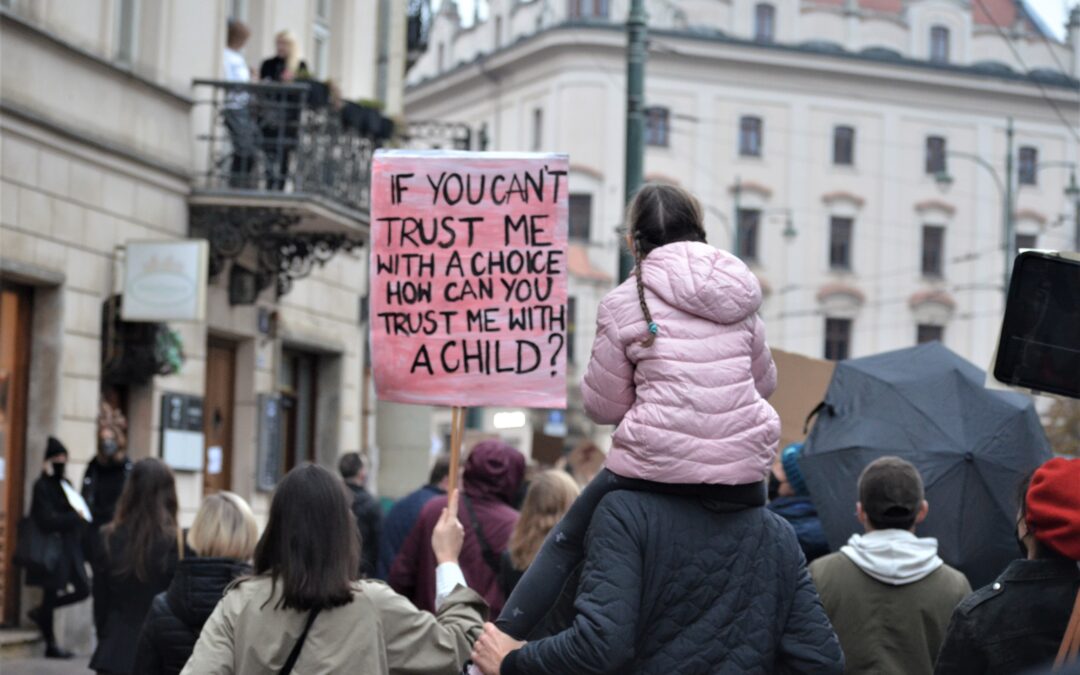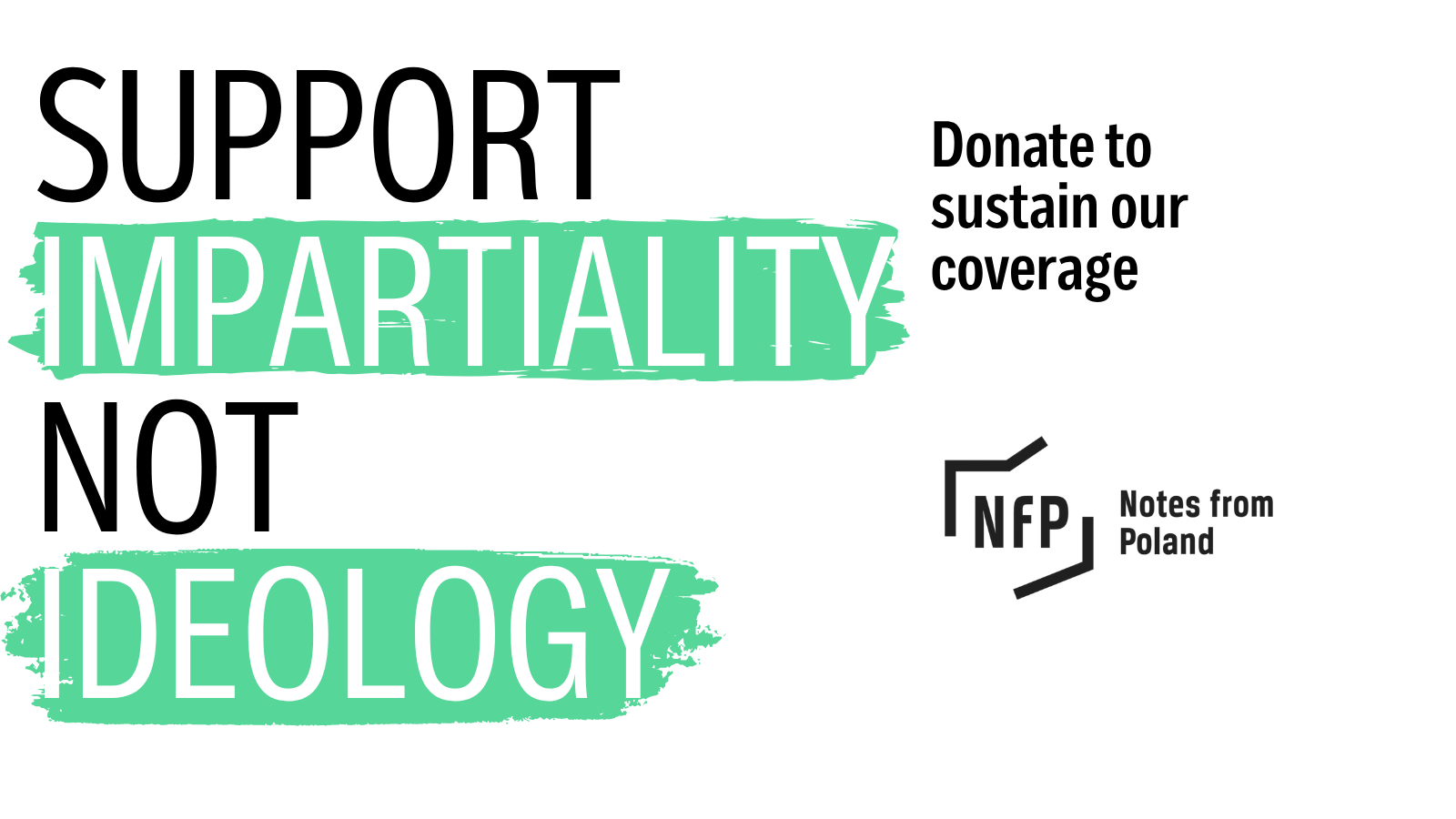Keep our news free from ads and paywalls by making a donation to support our work!

Notes from Poland is run by a small editorial team and is published by an independent, non-profit foundation that is funded through donations from our readers. We cannot do what we do without your support.
The European Court of Human Rights (ECHR) has ruled that Poland violated the rights of a pregnant woman who had to travel abroad to obtain an abortion after her foetus was diagnosed with a birth defect. It is the second time that the court has issued a judgment against Poland relating to its near-total abortion ban.
The ECHR found that the woman’s right to private and family life was violated by the legal uncertainty created by the delay between the Polish Constitutional Tribunal (TK) ruling of October 2020, which banned abortion in cases of birth defects, and its implementation by the government over three months later.
Judgment A.R. v. Poland – Delayed publication of judgment restricting right to abortion undermined legal certaintyhttps://t.co/HmZ6sQVNGY#ECHR #CEDH #ECHRpress pic.twitter.com/NoK24G7i57
— ECHR CEDH (@ECHR_CEDH) November 13, 2025
The woman, who is named only by the initials A.R., is a Polish national who lives in the city of Kraków. She was 15 weeks pregnant when, on 22 October 2020, the TK issued its ruling that abortion in cases where the foetus has serious and irreversible birth defects is unconstitutional.
However, TK judgments only go into force once they are published by the government in the official Journal of Laws. The deadline for that to happen was 2 November 2020, but the government only finally published the ruling on 27 January 2021.
In the meantime, on 5 November 2020, A.R. had received the results of medical tests that confirmed her foetus suffered from a genetic disorder. Because of uncertainty about when the TK’s ruling would go into force, she travelled to the Netherlands to have her pregnancy terminated at a private clinic.
On 11 January 2021, A.R. submitted a complaint to the ECHR using a pre-filled application form published by the Federation for Women and Family Planning (Federa), which was encouraging women in Poland to lodge cases against the abortion ruling.
She claimed that the restrictions introduced by the TK had caused her serious and real emotional suffering, thereby violating her rights under article 3 of the European Convention on Human Rights, which prohibits inhuman and degrading treatment. However, the ECHR rejected that element of the complaint.
A.R. also argued that her right to respect for private and family life under article 8 of the convention had also been violated. Here, the court agreed, awarding her a total of almost €16,500 in damages.
Poland’s near-total ban on abortion violated the rights of a woman who had to travel abroad to obtain an abortion, the European Court of Human Rights has ruled.
It found that the ban was introduced by illegitimately appointed constitutional court judges https://t.co/nPHDZC89u2
— Notes from Poland 🇵🇱 (@notesfrompoland) December 14, 2023
In its justification, the ECHR noted that the TK’s ruling “could have been published at any time” and that “in general [TK] judgments are published immediately.
However, the fact that it was so delayed created “a great feeling of uncertainty, aggravated both by the absence of any transitional measures and the ongoing COVID-19 pandemic”.
“It remained unclear whether the restrictions on abortion on the grounds of foetal abnormalities had already taken effect or if abortion could still be legally performed,” wrote the court, and this “constituted an ‘interference’ with the applicant’s Article 8 rights”.
Three doctors have been given prison sentences for negligence in treating a pregnant woman who died in hospital.
Izabela's death in 2021 prompted mass protests against Poland’s near-total abortion ban, which had been introduced earlier that year https://t.co/nHUo6Fmc2Z
— Notes from Poland 🇵🇱 (@notesfrompoland) July 17, 2025
It also noted that three of the TK judges involved in issuing the abortion ruling were illegitimately appointed under Poland’s former Law and Justice (PiS) government and PiS-aligned President Andrzej Duda.
That was a primary factor in the ECHR issuing its first ruling against Poland’s near-total abortion ban in December 2023 and, in today’s judgement, the court said that “those findings were also relevant in this applicant’s case”.
The TK’s abortion ruling triggered the largest protests Poland has seen since the fall of communism. Its unpopularity was widely seen as one of the major factors in PiS losing its parliamentary majority at elections in 2023, with Prime Minister Mateusz Morawiecki admitting that pushing for the ruling had been a “mistake”.
Poland’s prime minister has admitted it was a “mistake” for the ruling party to push for the constitutional court to introduce a near-total abortion ban in 2020.
He claims “he has always been a supporter” of the abortion law that existed before the ruling https://t.co/QObza3Raxk
— Notes from Poland 🇵🇱 (@notesfrompoland) November 6, 2023
In December 2023, a new government led by Prime Minister Donald Tusk came to power. One of its key pledges was to soften the abortion law. However, it has failed to do so since then amid disagreements between more conservative and liberal elements of the ruling coalition.
Last year, Tusk admitted that it was unlikely that there would be a majority in favour of liberalising the abortion law during the current parliamentary term, which runs until 2027.
However, his government did instead publish guidelines for doctors and prosecutors that were intended to make it easier for women to obtain legal abortions.
Prime Minister @donaldtusk has admitted that there will not be a majority for the liberalisation of Poland’s abortion law during the current parliamentary term.
In its 2023 election campaign, Tusk's KO pledged to end the country’s near-total abortion banhttps://t.co/IGPrCdL6ew
— Notes from Poland 🇵🇱 (@notesfrompoland) August 26, 2024

Notes from Poland is run by a small editorial team and published by an independent, non-profit foundation that is funded through donations from our readers. We cannot do what we do without your support.
Main image credit: Silar/Wikimedia Commons (under CC BY-SA 4.0)

Daniel Tilles is editor-in-chief of Notes from Poland. He has written on Polish affairs for a wide range of publications, including Foreign Policy, POLITICO Europe, EUobserver and Dziennik Gazeta Prawna.




















